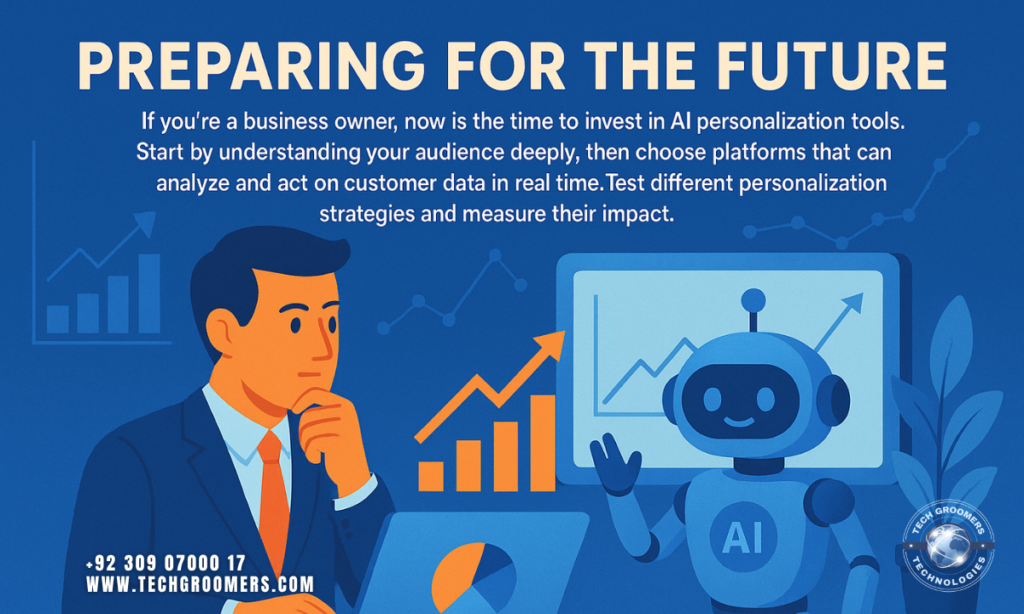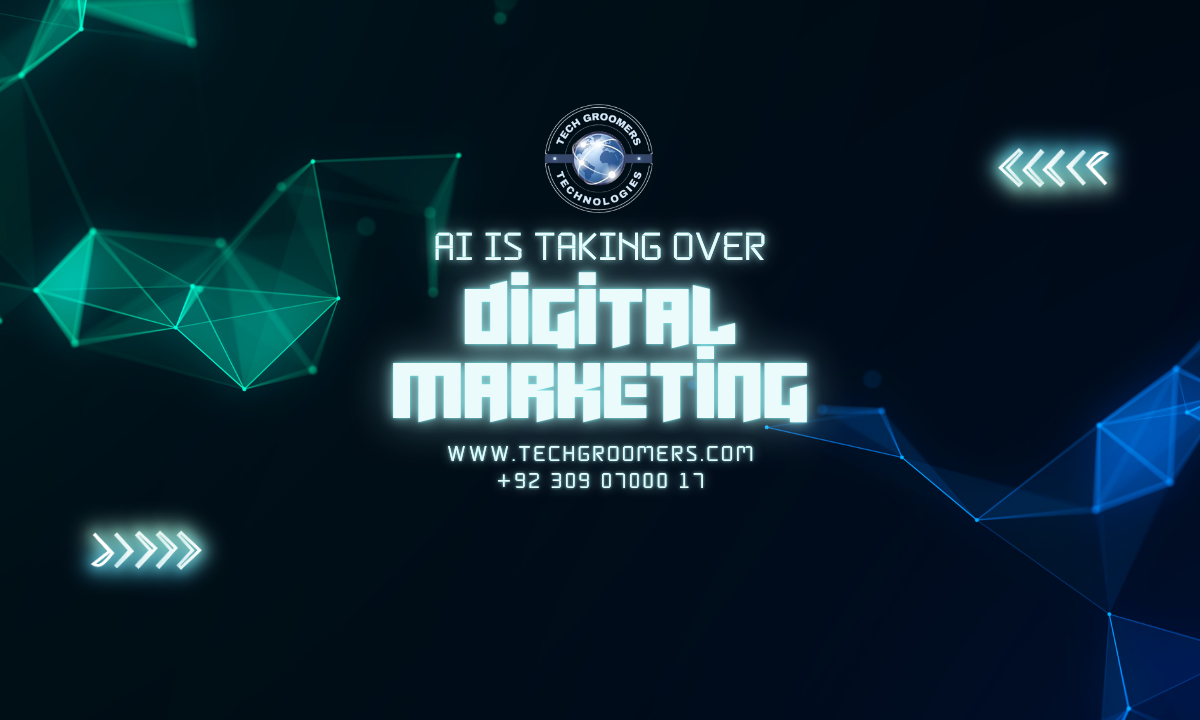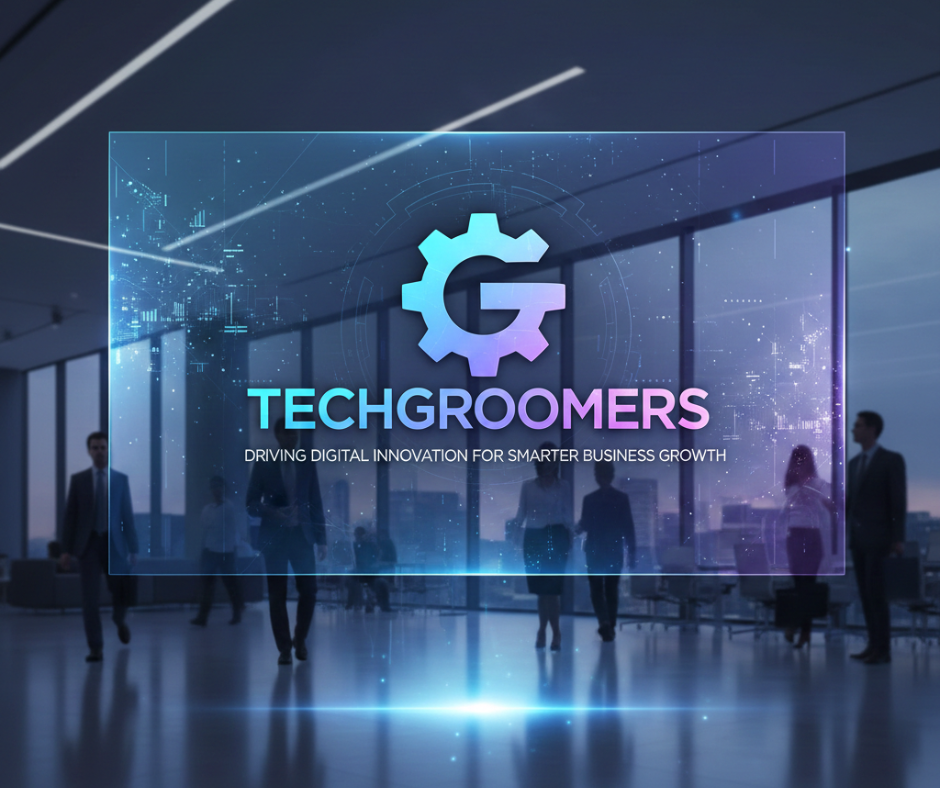If you’ve been keeping an eye on digital marketing trends, you’ve probably noticed how personalization has moved from a nice-to-have feature to an absolute necessity. And in 2025, thanks to rapid advances in artificial intelligence (AI), personalization has entered a completely new era. At TechGroomers, we’ve been watching this evolution closely, and the changes are nothing short of revolutionary.
The Shift Towards AI-Driven Personalization
Just a few years ago, personalization in marketing meant addressing customers by their first names or recommending products based on purchase history. While those methods still work, AI has completely transformed the game. Now, brands can analyze user behavior in real time, predict future needs, and deliver highly customized experiences across multiple platforms.
AI-powered personalization tools can gather insights from browsing patterns, search history, social media engagement, and even location data. This level of precision helps businesses serve the right content to the right person at exactly the right moment.
Why 2025 Is the Tipping Point
The digital world is flooded with content, making it harder than ever to capture attention. This year, AI is stepping in to cut through the noise. With machine learning models becoming more sophisticated, marketers can now create micro-segmented audiences. Instead of targeting broad groups, AI can identify and target niche clusters based on very specific interests, behaviors, and needs.
For example, an online clothing retailer can use AI to recognize that a customer prefers eco-friendly fabrics, follows sustainable fashion influencers, and shops mostly on weekends. The system can then send them highly relevant offers on Saturday mornings featuring organic cotton apparel.
The Role of Predictive Analytics
One of the biggest AI-driven breakthroughs in personalization is predictive analytics. Rather than just reacting to customer behavior, businesses can now anticipate what customers are likely to do next. Predictive algorithms analyze historical data to forecast future purchases, content preferences, and engagement patterns.
This approach not only improves conversion rates but also enhances customer loyalty. When customers feel that a brand understands their needs—even before they express them—they’re more likely to stick around.
Hyper-Personalized Content Marketing

Content marketing is no longer one-size-fits-all. In 2025, hyper-personalized content is dominating the digital space. AI can adjust messaging, visuals, and even product suggestions in real time based on who’s viewing the content.
For instance, a travel website might display different homepage banners depending on whether the visitor is a budget traveler, a luxury seeker, or a family planner. The same article could be dynamically altered with location-specific tips and recommendations.
Voice Search and AI Personalization
With the rise of smart assistants and voice search, AI personalization is expanding beyond text-based interactions. Voice-enabled devices can analyze tone, language patterns, and context to deliver even more accurate responses. This creates opportunities for businesses to connect with customers in natural, conversational ways.
For example, a fitness app integrated with voice AI could respond to a user’s spoken request for “quick morning workouts” by suggesting a five-minute routine tailored to their past activity level and available time.
Ethics and Privacy Concerns
While AI-powered personalization offers incredible opportunities, it also raises ethical questions. How much data is too much? Where should the line be drawn between personalization and intrusion? In 2025, transparency and consent are critical.
Brands must be clear about how they collect, store, and use personal data. Customers are more willing to share information if they understand the benefits and trust the brand’s integrity. Compliance with global data privacy regulations like GDPR and CCPA is non-negotiable.
AI in Email and SMS Marketing
Email and SMS remain powerful channels for customer engagement, and AI has taken them to the next level. By analyzing open rates, click-through behavior, and response times, AI can determine the optimal time to send messages and tailor the subject lines for each recipient.
Instead of sending a generic “Spring Sale” email to your entire list, AI could send one user a message about hiking gear, another about floral dresses, and a third about gardening tools—all based on their interests and shopping habits.
Personalization in E-commerce
E-commerce platforms are the biggest beneficiaries of AI-driven personalization. Features like dynamic pricing, personalized search results, and AI-powered chatbots make online shopping feel like an in-store experience.
Imagine logging into your favorite online store and seeing not only relevant products but also personalized payment plans, shipping options, and bundle suggestions. AI ensures that every customer’s journey is uniquely optimized.
The Role of TechGroomers in the AI Personalization Era
At TechGroomers, we help businesses harness the full potential of AI-powered personalization. From developing custom AI algorithms to integrating advanced analytics into marketing strategies, we ensure our clients stay ahead in the competitive digital landscape.
Our approach blends technology with human creativity, ensuring that personalization feels authentic rather than mechanical. We believe that AI should enhance—not replace—the human touch in marketing.
Preparing for the Future

If you’re a business owner, now is the time to invest in AI personalization tools. Start by understanding your audience deeply, then choose platforms that can analyze and act on customer data in real time. Test different personalization strategies and measure their impact.
The key is to stay flexible. AI technology will continue to evolve, and so will customer expectations. What feels advanced today might become standard tomorrow.
Conclusion
The future of personalization in digital marketing is here, and AI is at the center of it all. By embracing AI-driven strategies, businesses can create more meaningful, relevant, and engaging customer experiences.
At TechGroomers, we’re excited to help brands navigate this transformation. In 2025, the brands that master AI personalization won’t just survive—they’ll thrive




Leave a Reply